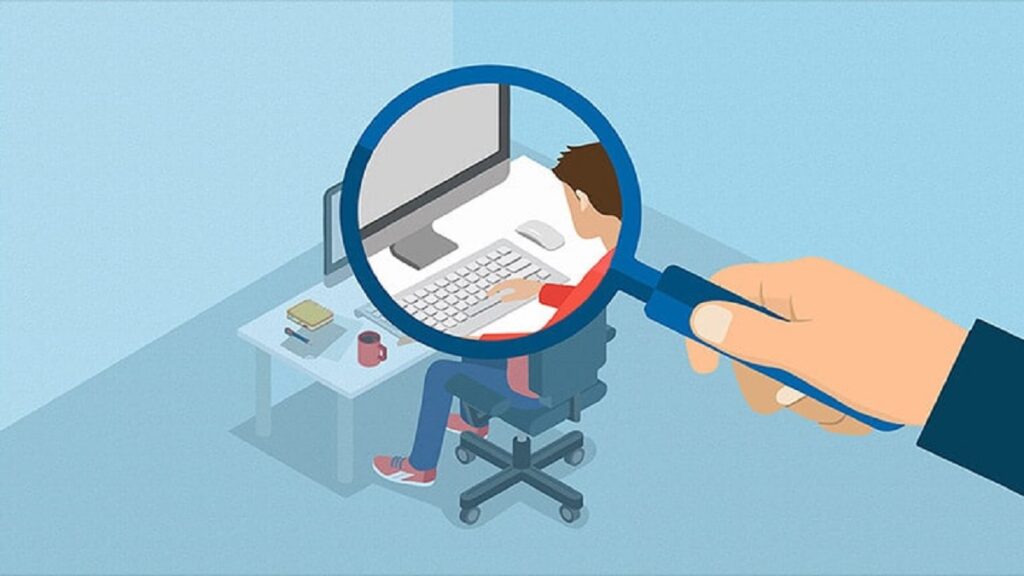
Imagine you returned to work on Monday to find that everyone had been discussing the sites you had visited over the weekend. We both understand that this finding is not likely to make you happy.
In this day and age, we must confess that the anonymous browsing mode won’t save us. Monitoring the sites we visit or the activities we engage in can feel like an invasive intrusion into one’s privacy. This is where the chaste reader who is timid and prudent, like you, flees for freedom.
There’s no denying that our ISPs keep tabs on our every move online. Not only can they track our physical locations but also the devices we use, the websites we visit, the amount of time we spend on those pages, and the information we consume. They Monitor Everything!
Let’s Dig into Why Your ISP Track You
Even if your ISP generally doesn’t have a human sitting at a desk watching your every move, that doesn’t mean they aren’t logging your activity.
There are many reasons why your Internet service provider monitors your clicks. Your clickstream is pure gold to them. In order to make money, several ISPs collect users’ browsing histories and then sell them to advertising firms. Some ISPs are even considering making privacy a paid add-on, mining your browsing history for advertising purposes in the same manner that websites do if you don’t shell out extra cash.
In addition, other parties like the police or other government agencies may have access to the information your ISP gathers. Your Internet service provider (ISP) must comply with a subpoena in order to provide any information they have about you.
And Why Should You Be Concerned?
That begs some questions: “So what?” We’re already bombarded by adverts online; why not a few more advertisements, especially if they’re tailored to our interests? Moreover, it is not anyone’s business if the government utilizes ISP data to track down criminals or combat terrorism. Isn’t that something to be thankful for?
Ah, if only it were that easy. Most of us probably don’t find it all that concerning to think that the government might be able to monitor our internet behavior. However, engaging in seemingly harmless internet activities may be risky, even if you live under an authoritarian regime. Trusting anyone with your personal information in this era of frequent data breaches is, at best, foolish. When it comes to security, not even ISPs are safe.
Therefore, you should pause for a moment and consider how much information your ISP might have on you. Perhaps you occasionally use BitTorrent to download illegal media. Perhaps you’ve been secretly checking out some adult content on the internet without telling your loved ones. Would you like your health insurance company to know that you looked into possible early warning signals of cancer? Moreover, is it anything you want your current employer to know that you’re actively seeking a new position? Most of us would rather have our browser history remain private between ourselves and our computers.
Since your ISP is the mediator between you and the rest of the internet, they can easily track your every move. The best you can do is throw them off by hiding your traces.
Okay, But What If You Use a VPN?
Virtual Private Networks (VPNs) are, without a doubt, the most popular platforms companies use to enable remote work for their staff, so luckily, there is a simple solution in the shape of a VPN.
The VPN encrypts your connection to your employer’s network when you log in from off-site, such as at home or when traveling, so your data is just as safe as if you were in the office. Your ISP won’t be able to see what sites you visited while connected to your employer’s VPN. Pretty awesome, right?
According to BestVPNDeals.com, the number of businesses that offer VPN solutions to the general public has rapidly increased in recent years. Similar to a VPN used at work, these solutions encrypt your data while you surf the web to prevent your ISP from viewing it. Private VPNs can hide your online activity from your Internet service provider (ISP) or allow safe web browsing over public Wi-Fi.
But there is a caveat, you need to be cautious while picking a virtual private network (VPN) or proxy provider. You may hide your browser history from your ISP and the sites you visit with any of them, although some may retain their own records. If you don’t read their terms of service, you might end yourself paying for the same non-private surfing you were already getting!
Will a Free VPN Do the Job?
Astute individuals like you may wonder, “what is it that you’re hiding your data from one screen to offer it to another?” Well, in case you opt for a free VPN service, you may be correct.
The business model of some free VPNs involves collecting and selling your personal information to third parties, such as advertisements. That’s why it’s important to find a premium and affordable VPN, such as Obscured VPN, that doesn’t keep any logs of your activity, so they can’t hand over any information to your ISP or government.
One Last Word of Care!
Even though it’s perfectly legal to use the above tools – paid or free – the things you do with them are still subject to the same laws as everything else you do online.
They could make it more difficult for your Internet service provider (ISP) or anybody else to monitor your online behavior, but they won’t prevent it from happening.
Don’t think you can get away with illegal activity just because you’re hiding behind the trusted & paid VPNs. Remember that privacy may be a valuable resource, but abusers put everyone’s privacy at risk.












































